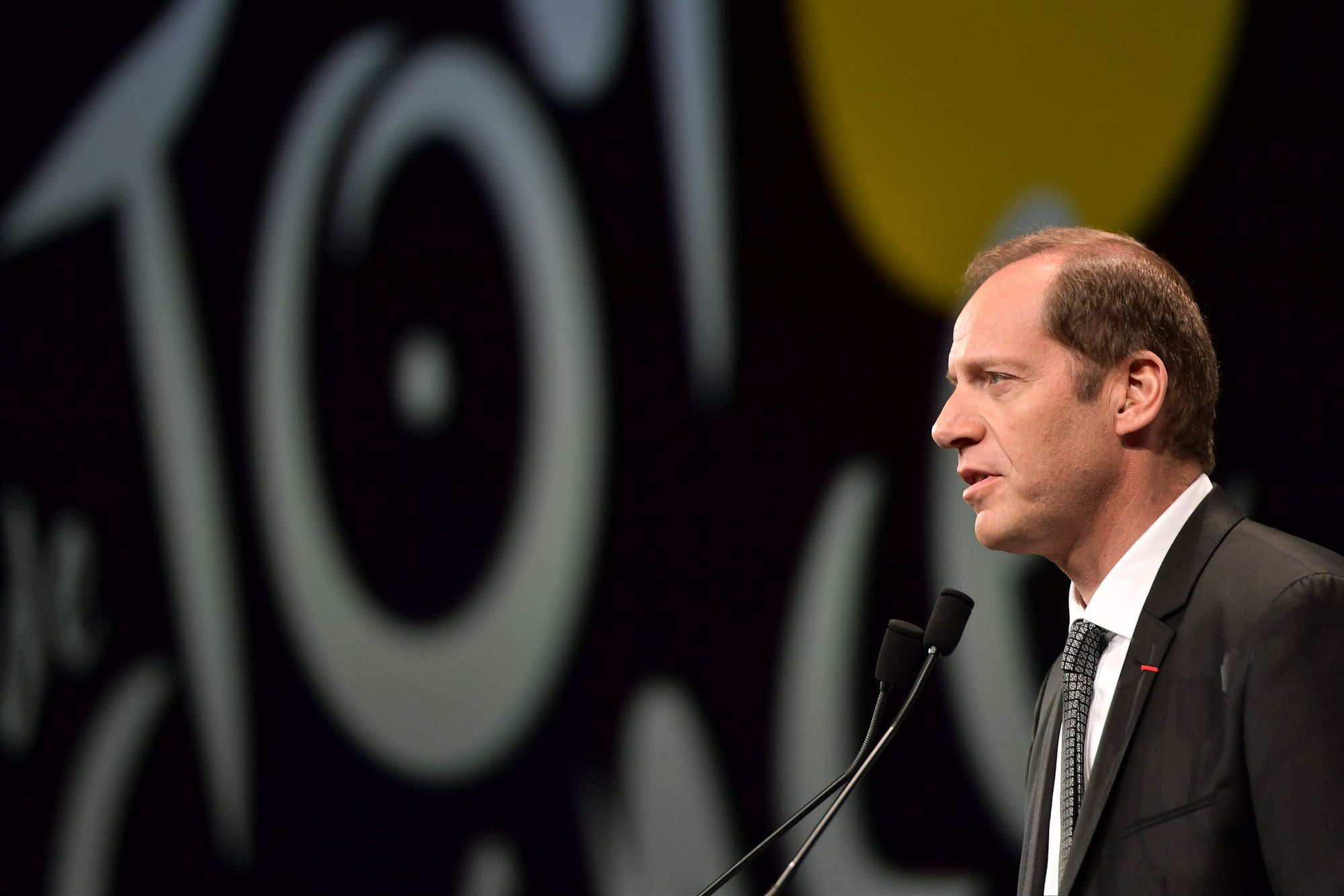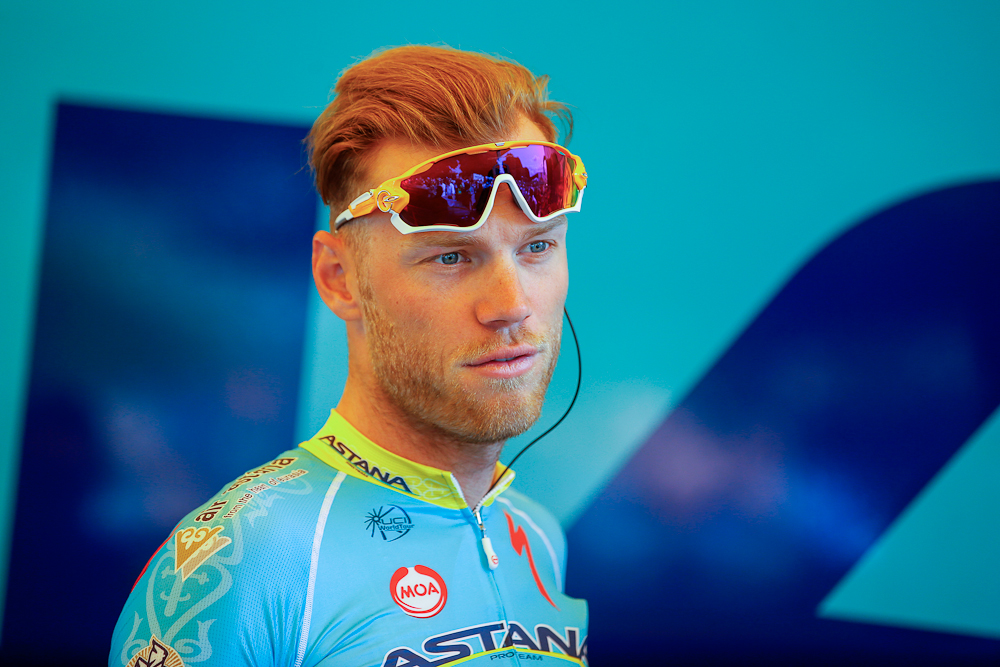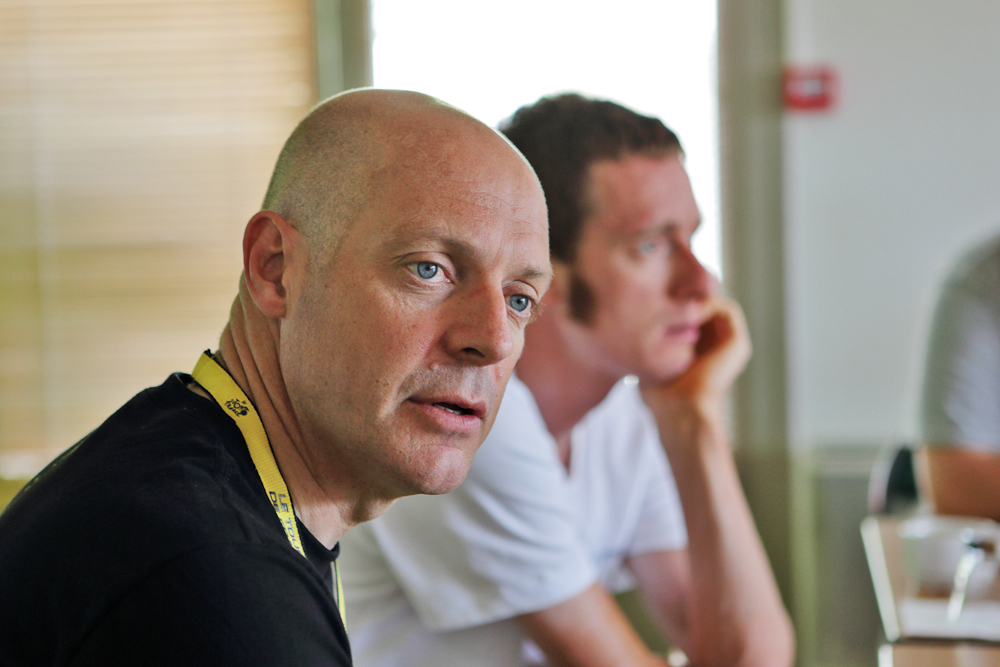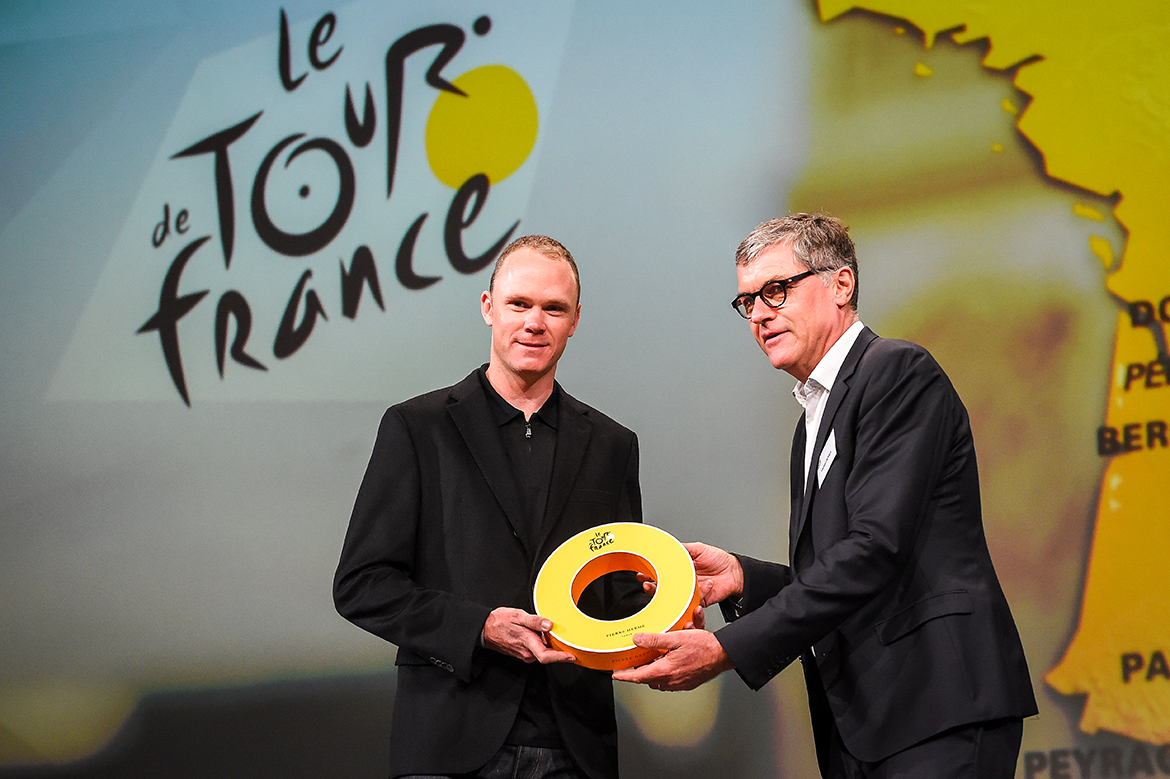Prudhomme: MPCC philosophy is the key to cycling's future
Tour de France director issues resounding endorsement of voluntary body




Christian Prudhomme took to the stage in Paris' Palais des Congres on Tuesday to unveil the route for the 2017 Tour de France, but one of the most striking aspects of his opening address had nothing to do with start towns, summit finishes or time trials.
Astana excluded from the MPCC after Lars Boom cortisol case at the Tour de France
MPCC stands by cortisol tests, rules will allow substitute riders in 2016
Voeckler: the spirit of the MPCC has been devalued - Video
Orica-GreenEdge leaves the MPCC
MPCC says Katusha, Astana and Lampre-Merida only joined out of opportunism
'Now we understand why Team Sky never joined,' says MPCC doctor
It was the moment he mentioned the Mouvement Pour un Cyclisme Credible (MPCC), and issued an endorsement of the voluntary organisation that, in the current climate, carried considerable weight and resonance.
"It's the key to our future," he said, quoting the MPCC's strap line-come-mission statement: 'keeping the light alight'.
Light has been hard to come by for cycling in recent weeks, the sport instead cast in the gloomy grey over ethical questions surrounding Bradley Wiggins - the first British winner of the Tour - and Sky - the team of four of the past five champions.
Wiggins was well within the anti-doping rules when he was provided a Therapeutic Use Exemption for injections of the powerful and ordinarily-banned triamcinolone acetonide ahead of the 2011 and 2012 Tours de France and 2013 Giro d'Italia for severe allergy symptoms.
But skepticism abounds over the veracity of Wiggins' need for a drug David Millar has described as the "most potent" he ever used, the timing of the injections, and the credibility of Sky's self-styled commitment to cleanliness and transparency - to name a few issues at play. Such a TUE would not have been allowed had Sky been a member of the MPCC.
Membership in the MPCC is voluntary and its rules go above and beyond those of the WADA code-bound UCI: a rider cannot avail of a TUE and race, while they also carry out regular cortisol testing - low levels being potentially indicative of fatigue or possible cortisone use. MPCC rules require teams to withdraw a rider with low cortisol from racing.
Get The Leadout Newsletter
The latest race content, interviews, features, reviews and expert buying guides, direct to your inbox!
That rule resulted in an exodus of WorldTour teams from the MPCC this year. In 2015, Lars Boom tested low for cortisol before the Tour de France and raced in violation of the rules. The Astana team was suspended and eventually left the organisation, as did Orica-GreenEdge, Team Katusha, and LottoNl-Jumbo. Only six of the 2017 WorldTour teams are members of the MPCC: AG2R La Mondiale, FDJ, Giant-Alpecin, Cannondale-Drapac, Lotto Soudal and Dimension Data.
"The raison d'etre of the MPCC today has all the justification it did when it was established 10 years ago," said Prudhomme in Paris on Tuesday.
"Imposing, by free consent, stricter rules than those of the international bodies, can allow us to avoid interrogations, debates, and controversies."
As UCI president Brian Cookson reminded us last week, no formal anti-doping rules were broken by Wiggins or Sky, but the whole affair has inspired debate over whether the rules are open to abuse and, consequently, fit for purpose.
"There can be respect for the rules but we must go further," said Prudhomme, who argued that more needs to be done to return the sport's reputation to full health.
"Cycling has changed a lot - it's no longer the black sheep - but in terms of recovering the image of the sport it's still very complicated.
"I like the MPCC's tag line - keep the light alight. That's the key to our future."
Patrick is a freelance sports writer and editor. He’s an NCTJ-accredited journalist with a bachelor’s degree in modern languages (French and Spanish). Patrick worked full-time at Cyclingnews for eight years between 2015 and 2023, latterly as Deputy Editor.
